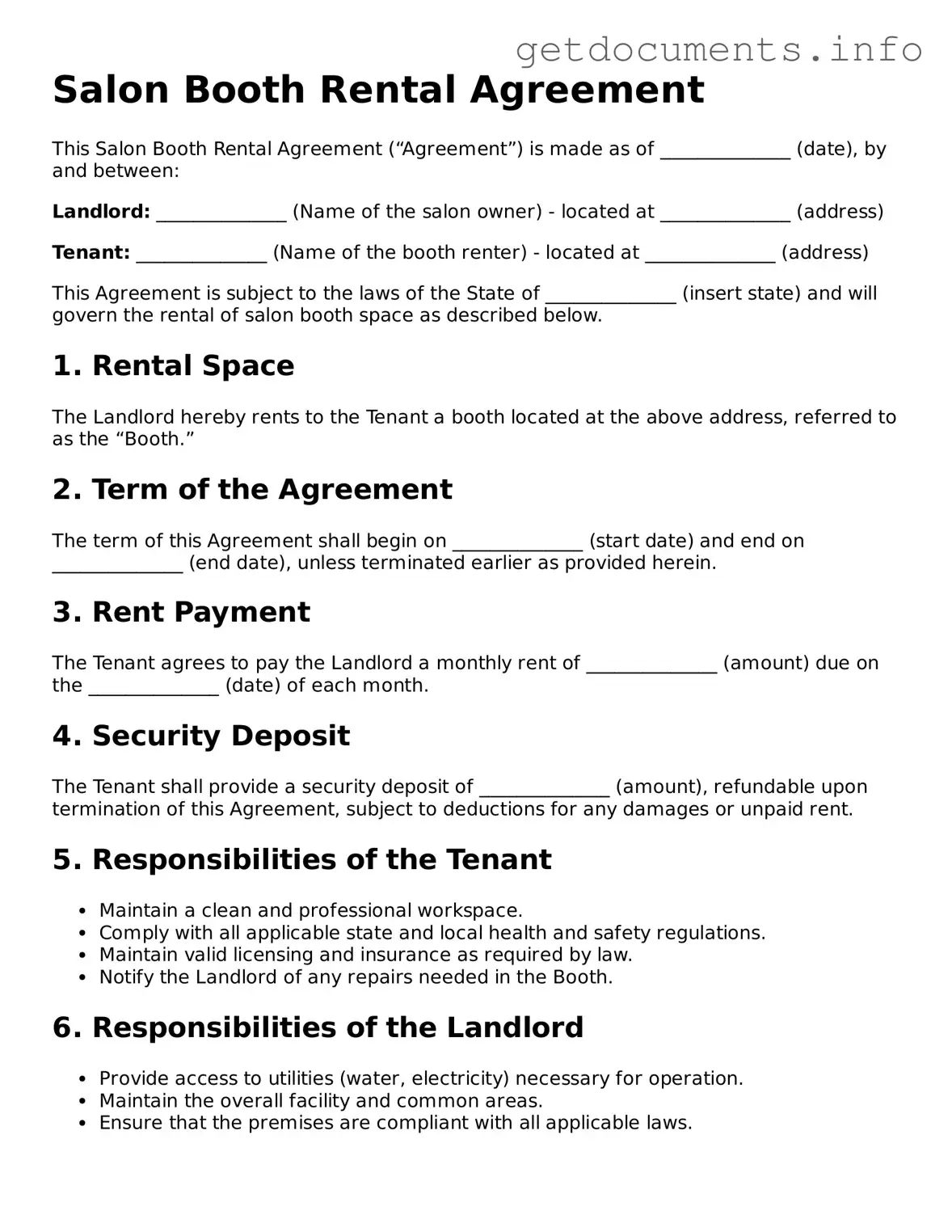Printable Salon Booth Rental Agreement Document
A Salon Booth Rental Agreement is a legal document that outlines the terms and conditions between a salon owner and a stylist who rents a booth within the salon. This agreement typically covers aspects such as rental fees, responsibilities, and duration of the rental, ensuring both parties understand their rights and obligations. To streamline your rental process, consider filling out the form by clicking the button below.
Access Salon Booth Rental Agreement Editor

Printable Salon Booth Rental Agreement Document
Access Salon Booth Rental Agreement Editor
Got places to be? Complete the form fast
Fill out Salon Booth Rental Agreement online and avoid printing or scanning.
Access Salon Booth Rental Agreement Editor
or
⇩ PDF File
